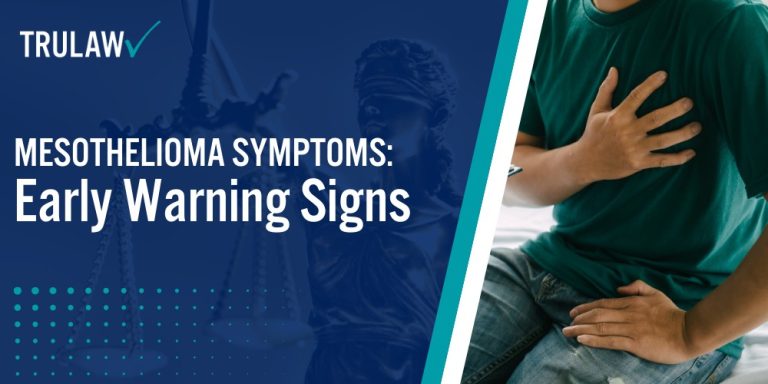Mesothelioma is a rare and aggressive cancer caused by asbestos exposure, with symptoms that can take decades to appear and often mimic other less serious medical conditions.
The type of mesothelioma significantly influences the specific symptoms a patient experiences, making early detection challenging for medical professionals.
Pleural Mesothelioma Symptoms
Malignant pleural mesothelioma primarily affects the lining of the lungs, causing a range of respiratory and systemic symptoms that can significantly impact a patient’s quality of life.
The disease develops in the pleural membrane, creating unique challenges for patients and healthcare providers.
Patients with pleural mesothelioma may experience the following key symptoms:
- Shortness of Breath: Difficulty breathing, especially during physical activities
- Persistent Cough: Dry, ongoing cough that does not respond to typical treatments
- Pleural Effusion: Fluid buildup between the lung and chest wall, causing additional breathing difficulties
The progression of these symptoms can be gradual, with many patients reporting minimal issues in the early stages of the disease.
Medical experts emphasize the importance of tracking these symptoms, especially for individuals with a history of asbestos exposure.
Peritoneal Mesothelioma Symptoms
Malignant peritoneal mesothelioma targets the abdominal lining, presenting a different set of symptoms that primarily affect the digestive system and overall abdominal health.
This rare form of cancer can cause significant discomfort and complications for patients.
Patients with peritoneal mesothelioma often report the following symptoms:
- Abdominal Pain: Persistent discomfort or sharp pain in the abdominal region
- Abdominal Swelling: Unexplained distension or bloating of the stomach area
- Digestive Issues: Problems including constipation, diarrhea, and nausea
- Weight Loss: Unexpected and rapid reduction in body weight
A 2023 study in Oncology in Clinical Practice highlighted that 30% to 80% of peritoneal mesothelioma patients experience abdominal distension, underscoring the significance of these symptoms.
Doctors find it challenging to diagnose mesothelioma due to the similarity of these signs and symptoms to more common digestive disorders.
Pericardial Mesothelioma Symptoms
Pericardial mesothelioma represents an exceptionally rare form of the disease, with limited documented medical cases.
This type specifically impacts the heart’s protective lining, creating significant cardiovascular complications that can be challenging to diagnose initially.
Here are the primary symptoms patients might experience with pericardial mesothelioma:
- Chest Pain: Sharp or persistent discomfort around the heart region
- Heart Palpitations: Irregular heartbeat or sudden rhythm changes
- Breathing Difficulties: Shortness of breath, especially when lying down
- Fatigue: Persistent weakness and reduced physical endurance
Medical professionals emphasize that these symptoms frequently mimic other cardiac conditions, which can delay the accurate identification of malignant pericardial mesothelioma.
Patients with a history of asbestos exposure should communicate these symptoms promptly to their healthcare providers.
Testicular Mesothelioma Symptoms
Testicular mesothelioma stands as the rarest form of this cancer, representing approximately 1% of all diagnosed cases.
The symptoms are often subtle and can be mistaken for more common testicular conditions.
Patients might notice the following signs of testicular mesothelioma:
- Scrotal Swelling: Unexpected enlargement or fluid accumulation
- Testicular Lumps: Unusual growths or abnormal masses
- Testicular Pain: Discomfort similar to a groin injury
- Fluid Buildup: Unexplained accumulation in the scrotal area
Medical experts recommend immediate medical evaluation for individuals experiencing these symptoms, particularly those with a documented asbestos exposure history.
Early detection remains critical for potential treatment options in this rare manifestation of mesothelioma.



